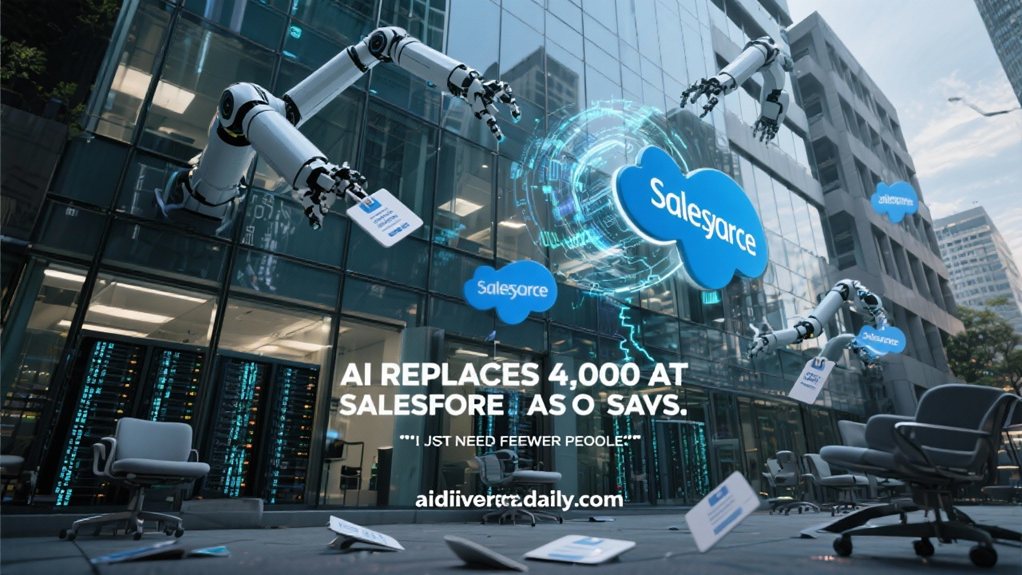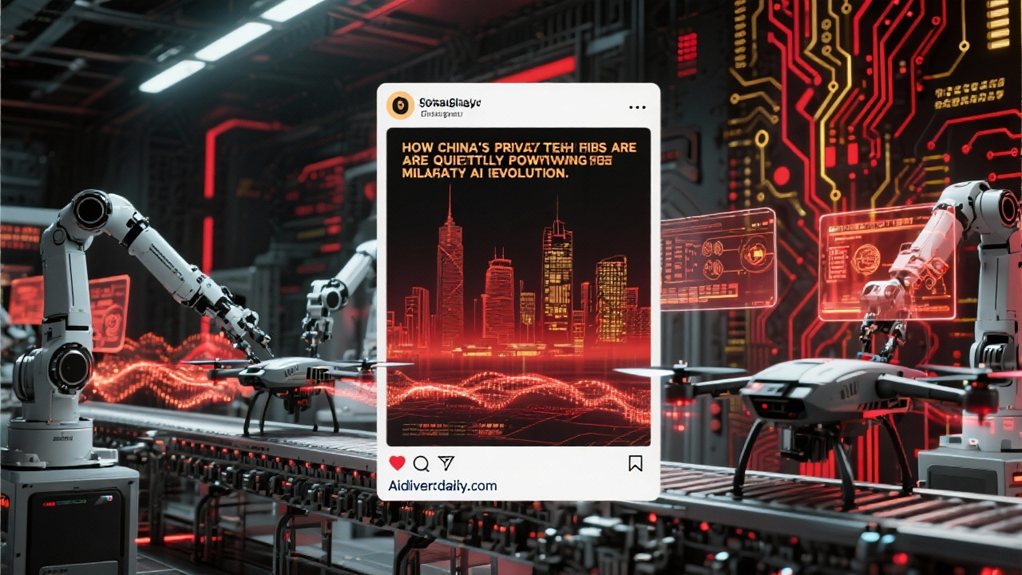Salesforce just made a jaw-dropping move, slashing around 4,000 customer support jobs. Yup, you heard that right. The tech giant decided it could do without thousands of employees, claiming that AI is taking over the heavy lifting. In cities like San Francisco and Seattle, the layoffs hit hard. They weren’t just a few random folks either—262 in San Francisco and 93 in Washington State. The cuts spread through various teams, including sales, administration, and tech. Talk about a corporate shake-up!
CEO Marc Benioff didn’t mince words. He tied these layoffs directly to AI efficiencies, stating, “I just need fewer people.” Ouch! How’s that for a motivational speech? The company is transforming into what he calls a “modern Agentic Enterprise.” It sounds fancy, but it boils down to one thing: less human involvement. AI, now dubbed the “Agent Force,” is taking over customer service tasks, leaving humans with fewer roles to fill. Additionally, 262 workers from Salesforce‘s San Francisco headquarters are officially leaving the company around November 3. As a result of these changes, many employees are now seeking to acquire new skills to remain relevant in the job market.
Sure, it’s all about reallocating talent toward sales and streamlining support functions, but let’s be real. A lot of people are left in the lurch. Benioff says he’s concerned about employee shifts, but that’s cold comfort for those who just lost their jobs. The massive layoffs align with predictions that job displacement could affect 300 million workers globally by 2030.
And let’s not forget the financial fallout—Salesforce is feeling it. The restructuring costs have skyrocketed, showing just how pricey these layoffs can get.
The layoffs are part of a broader trend, with Salesforce leading the charge in AI-driven workforce reductions. Other companies might follow suit, seeing this as a green light to cut costs through automation. It’s a risky game, though. The tech industry is evolving, but at what cost to the workforce?
The impact reaches beyond the numbers. With Salesforce at the forefront, this shift underscores a changing landscape. AI in consumer and enterprise tech is reshaping job roles, and the stakes are high. Workers everywhere are left wondering if their jobs will still be around tomorrow.
In the end, Salesforce’s move is a wake-up call. AI is not just a buzzword; it’s a reality that’s changing how businesses operate. And while efficiency might be the goal, the human toll is hard to ignore. The question remains: who’s left to pick up the pieces?









